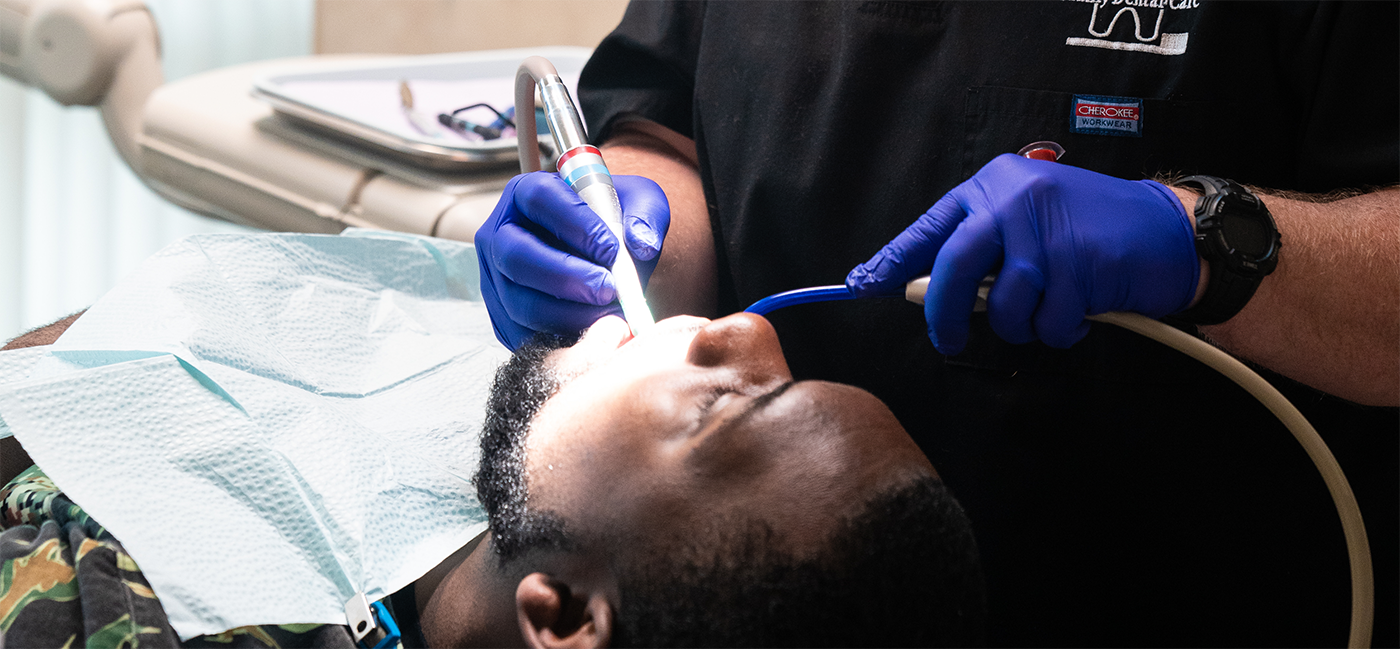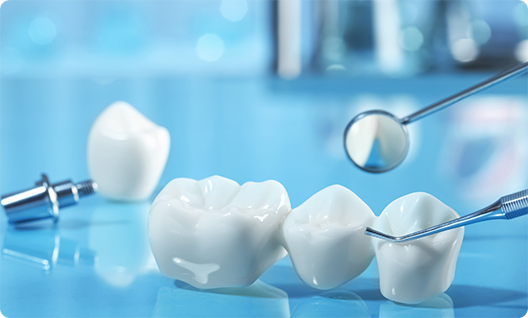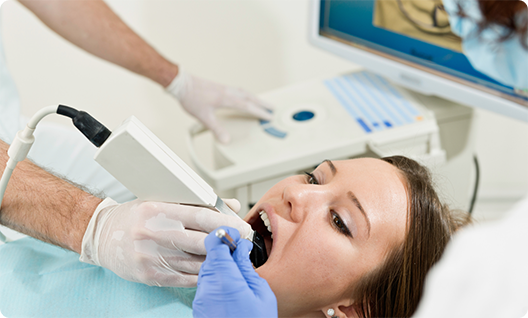@LITTLEROCKFAMILYDENTALCARE
Follow Us On InstagramDental Bridges Little Rock
Eliminating Gaps and Repairing Smiles

Little Rock Family Dental Care is comprised of a team of dental experts who all strive to meet the same goal, which is to improve patient smiles. When someone arrives with a missing tooth or needs help to replace multiple missing teeth, we can provide a host of options to choose from. However, one of the safest, most reliable solutions continually used by dentists is a dental bridge. These custom-made restorations have been helping patients to see new and improved smiles for years. Using advanced technology and the most natural-looking materials, our team can give you the results you desire and the functionality you need. Contact us today to schedule an appointment and learn how dental bridges in Little Rock can change your life.
Why Choose Little Rock Family Dental Care for Dental Bridges?
- Highly Skilled Prosthodontist
- Only the Most Advanced Dental Technology
- Natural and Aesthetically Pleasing Materials Used
What is a Dental Bridge?

A dental bridge is a customized, restorative solution that “bridges the gap” between healthy teeth. When a single tooth is missing or multiple consecutive teeth need replacing, a dental bridge can be created by fusing three or more dental crowns. The outer crowns are placed over your healthy, natural teeth, which will serve as anchors for the prosthetic, while the interior, artificial teeth will sit on top of your gums to replicate a complete smile.
Who is a Good Candidate for a Dental Bridge?

Individuals who are considering a dental bridge for their missing teeth in Little Rock must have good general oral health. This means that if one of our dentists discovers you have periodontal disease (gum disease) or tooth decay, it will be necessary for us to address these issues before moving forward with a dental bridge placement.
However, if after undergoing a full examination by one of our dentists you learn you are a good candidate for a dental bridge, we can begin to formulate a treatment plan based on your individual needs. If you prefer a less invasive solution, we can easily place a bridge over your natural teeth, but if you prefer a more permanent solution, it may be possible to insert a dental implant into your vacated socket and fit you with a customized dental bridge that will be secured to the top.
It’s important to know that to receive a dental implant, your jawbone must be dense enough to support the restoration.
The Dental Bridge Placement Process

When receiving a dental bridge, it will require altering the natural teeth located on either side of the gap. Why? Because these teeth will serve as anchors and must be prepped to comfortably accommodate your new restoration. After administering a numbing agent, we will file down these teeth and take impressions of your smile. This will serve as a blueprint for lab technicians to use when creating your customized bridge.
After several weeks, you will return to our office where we will remove the temporary prosthetic and put your finalized dental bridge into place.
What are the Benefits of Dental Bridges?

- Improved aesthetics by eliminating the gap in your smile
- Greater confidence because of your fully restored smile and appearance
- Better oral health because of the prosthetic’s ability to keep your natural teeth in place and avoid a possible shift
- A more evenly distributed bite force
- Improved functionality when eating, chewing, biting, and speaking
Dental Bridges FAQs
Can I take out a dental bridge?
A dental bridge is designed to provide long-lasting results. A fixed bridge is held in place by bonding dental crowns over the adjacent teeth. An implant bridge relies on titanium posts that are inserted into the jawbone to stay in place. Neither method is removable. Only a trained dental professional can take out a bridge. If you're interested in a removable option, ask your dentist about the benefits of a partial denture.
Are dental implants more expensive than a traditional bridge?
Dental implants cost more upfront than a traditional bridge, but they are the most affordable long-term because they never need to be replaced. An implant-supported bridge can last for decades, so you won't need to budget for replacements. Dental implants also keep your jawbone strong and healthy to avoid many common issues caused by missing teeth. As a result, you're less likely to need costly dental procedures later to save even more money down the road.
How long do dental bridges last?
The average lifespan for a traditional bridge is about 10 to 15 years, while an implant-supported solution can last for a lifetime. Many factors will affect the life expectancy of your new smile, like your home oral hygiene routine. Brushing, flossing, and using a daily mouthwash will keep your teeth and gums healthy. It's best to break any bad habits that can damage your restoration, like chewing on ice, biting your fingernails, or using your teeth in place of scissors. Besides caring for your smile at home, visit your dentist in Little Rock every 6 months for a cleaning and checkup. They'll keep your mouth healthy and check your restoration at each appointment to ensure it is undamaged and functioning as intended.
Can I use my dental insurance to get a bridge?
Every mouth and situation differ, but most dental insurance will cover some of the cost of a dental bridge. Besides covering your consultation and any preliminary treatments, your insurance can pay up to 50% of the expense of a traditional bridge. After meeting your annual deductible, you can use your yearly allowance to lower the amount you will pay out-of-pocket. A member of our office will work on your behalf with your dental insurance to maximize any coverage. They'll explain how your benefits are being used and your payment options for any remaining balance, like monthly installments. Based on your credit approval, you can enjoy little or no interest in financing through a third-party company to keep a complete smile within your budget.




